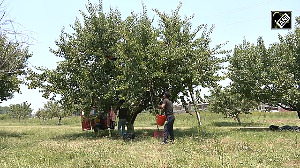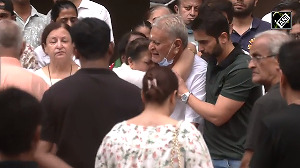Slamming the "widespread, entrenched and institutionalised discrimination" against minority immigrants in France, a United Nations independent expert has asked its government to enact policies to check racism in the country.
"Racism is alive, insidious and clearly targeted at those visible minorities of immigrant heritage, the majority of whom are French citizens," UN independent expert on minority issues Gay J McDougall, said.
"Young people's hopes and dreams are being denied. They see no possibility of upward mobility because of their skin colour, their religion, their surname or their address (in what's called the sensitive suburbs)," said McDougall, who visited France from 19 to 28 September.
Many victims of discrimination are stranded in "socially and geographically isolated urban ghettos", where unemployment is as high as 40 per cent, she noted.
"They feel discriminated against and rejected by rigid notions of French national identity to which they do not conform."
The expert also voiced concerned regarding statements made during the recent electoral period by French political leaders and candidates which she characterized as "unwelcoming at best and racist at worst".
"The Constitutional promise of equality is the vision, but not the reality of modern France. France's leaders must live up to that promise," she said. She urged authorities to make concerted efforts towards an acceptance of cultural diversity.
"Currently, there is a widespread feeling within the communities of new minorities that to become a citizen of France is not sufficient for full acceptance; that acceptance will be granted only with total assimilation that forces them to reject major facets of their identities," McDougall said.
During her visit, McDougall travelled to Paris, Marseilles and Strasbourg, and held meetings with government officials, religious leaders, academics, representatives of non-governmental organisations (and civil society groups, academics and others working in the field of minority issues, discrimination, racism and gender issues.
She also visited the Paris and Marseilles suburbs that were the scene of urban upheavals in 2005 to talk directly to those affected by the turmoil.





